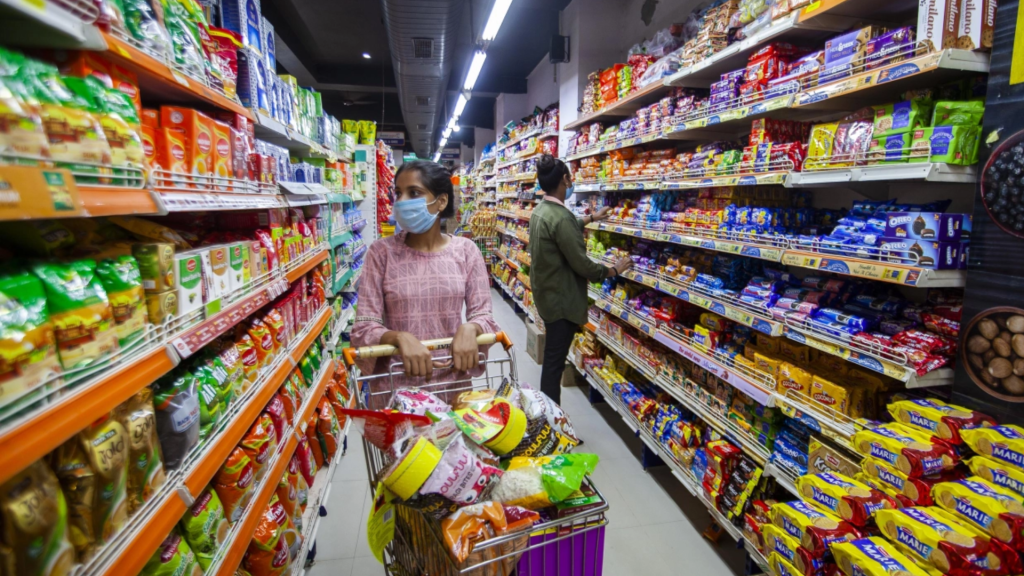Prominent consumer goods corporations like Hindustan Unilever (HUL), Dabur, Marico, Tata Consumer Products, and Havells have communicated in their recent earnings discussions that they anticipate notable enhancements in their profit margins during the upcoming three quarters of the ongoing fiscal year. This optimistic outlook is underpinned by the anticipation of continued reduction in input costs, which in some instances is surpassing their initial projections. A significant portion of these expected savings is intended to be reinvested into advertising and promotional (A&P) initiatives.
Since the December quarter, a majority of companies have been experiencing an ascending trend in their profit margins. This is primarily attributed to a year-on-year decrease in inflation and raw material expenses. Consequently, there has been a resurgence in expenditures dedicated to advertising and promotional activities. In the last quarter, these expenditures came close to matching the levels seen before the onset of the Covid-19 pandemic.
Marico’s CEO, Saugata Gupta, affirmed that in the upcoming July-September quarter, there will be further escalations in advertising and promotional investments. As the company strives to achieve operating margins of over 20%, significantly surpassing its earlier expectations, Gupta emphasized that this growth will not result from a reduction in year-on-year A&P expenditures. Instead, Marico aims to bolster demand while maintaining its commitment to these essential activities.
The CEO of Dabur, Mohit Malhotra, reported that the company experienced a growth of 74 basis points (bps) in gross margins during the April-June interval, owing to a reduction in inflation. These gains, according to Malhotra, were effectively reinvested in the business, marked by a substantial upswing in media expenditures. Notably, a basis point represents 0.01 percentage points. Dabur’s media spending witnessed a robust 30% increase in the last quarter.
“With the moderation in inflation expected to continue for next few quarters, there will be a margin upside…For the full year, we expect improvement in gross margins to continue. The gross margin expansion will be allocated towards increasing our advertising & promotion spends, and is also expected to result in improvement in our operating margin on an annualised basis,” said Malhotra.
Margin signifies the percentage of profit that a business generates from a sale after deducting expenses. In response to significant inflationary pressures and a demand deceleration caused by the Covid pandemic, numerous companies had turned to cost management strategies, including reductions in advertising and promotional spending, in order to enhance their margins.
Ritesh Tiwari, the Chief Financial Officer of HUL, a major player in the consumer goods sector, mentioned that the aspect of “media deployment,” which experienced a significant decline during the period of high inflation, is now in the process of returning to normalcy and has reached 95% of the levels witnessed in the June quarter of 2019. He further elaborated that the company has progressively increased its advertising and promotional expenditure, allocating an additional INR 200 crore in the June quarter compared to the previous March quarter.
Tiwari indicated that during the height of inflation in the September quarter of 2022, HUL’s gross margin experienced a substantial impact of 600 basis points (bps). However, he noted that over the last three quarters, spanning from October 2022 to June 2023, the company has managed to recoup 400 bps of its gross margin. Notably, a significant portion of this regained gross margin has been directed towards advertising and promotional activities.
“So, we have dialled up 300 bps of investment in A&P…Of course, where required, we did lean in with price reduction, with more amount of grammage to be filled back, and we will see the impact of these changes in consumer behavior and volumes in times to come. Typically, this takes 2 to 3 quarters for the whole thing to stabilize,” said Tiwari. For Tata Consumer Products, A&P to sales for the India business was at 7.1% in June quarter as compared to 6.6% in the same period last year.
During earnings calls, chief executives have also expressed their belief that demand, encompassing both essential and discretionary segments, will witness an enhancement in the latter half of the fiscal year. Additionally, sales volumes for fast-moving consumer goods have displayed a consistent improvement for the second consecutive quarter, observed in the period of April to June.
